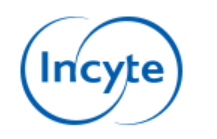Polycythemia vera (PV) is a rare, chronic blood cancer where the bone marrow produces too many red blood cells. Learn how Julie navigated her PV journey in the video above.
This video was developed by The Mighty in partnership with Incyte.
Transcription:
Text On Screen: Julie’s Journey with Polycythemia Vera
Julie: When I was doing athletic activities, I would notice that my endurance was off. It was like hitting a wall. When I would go to my office, I had to climb flights of stairs. By the time I would get to the second flight of stairs, I felt the heartburn and it was only relieved by bending over and I just dismissed it.
Text On Screen: Julie bounced from doctor to doctor over the course of months, searching for a diagnosis. At one point, she was hospitalized for a 90% blockage in her left coronary artery and had to get a stent put in.
This wasn’t the end of her journey.
Julie: Seven and a half years later, all of a sudden, again, it was just something was off. I was hungry, but as soon as I ate a little bit, I was instantaneously full. I had swelling in my abdomen, and I was so uncomfortable where I said, there’s something dramatically wrong.
Text On Screen: In 2008, Julie was hospitalized for a blood clot.
Julie: This team of doctors had started to connect some dots and say, “Let’s do some genetic tests.” This really intelligent doctor had come in and said, “We are fairly certain that what you have is Polycythemia Vera.”
Text On Screen: Polycythemia vera (PV) is a rare, chronic blood cancer where the bone marrow produces too many red blood cells. PV is part of a group of rare, chronic blood cancers called myeloproliferative neoplasms, or MPNs. This progressive cancer can occur at any age. Julie was diagnosed at age 36, but PV is most commonly diagnosed in adults over 60.
Julie: Then another doctor had come in and said, “your life is going to be completely different from that as you know it. If you trip and fall, you’ll have a major medical bleeding issue internally. All these types of high-risk activities that I like to do all that was off the table. Oh, and you’re young forget about having children because that’s not going to happen either.”
I just took all that information and said, it’s bucket list time. If one person says you can still carry on and worry about things and the other says, well your life as you know it is over. I better start thinking about what I want to do.
It is 11 years later, and my life has changed dramatically.
When I was first diagnosed, I left a lot of it up to the doctors.
What I have learned that has helped me get better care is that you have to research your doctor and see if they’re educated about PV and if they know about PV and the symptoms.
You also want to be able to educate the people closest to you, so they can understand what you’re dealing with on a daily basis so that they can give you the support that you need.
When you’re first diagnosed with something like this, it’s overwhelming and it’s easy to focus on the negative. My best advice is just to take it all in and doesn’t necessarily mean that is what’s going to happen.
Women with PV It’s overwhelming because you obviously are thinking about your family if you’re a mother. And if you’re a young person, you think about your whole life ahead of you if you’re going to become a mother or however you want to play out the rest of your life and your plans.
We have many networks to choose from today to gain insight and support from other women, it’s definitely a positive thing.
Finally, looking at the whole picture I realized when I was in my 20s when I first had that first blood test, whereas something’s a little off here, all the way to those two thrombotic events to final diagnosis was 14 years and I’m eternally to this day thankful for that resident Doctor who knew about having this JAK2 genetic test because I may have had another major traumatic event another major artery and wouldn’t be alive today.
End Card Text: MYELOPROLIFERATIVE NEOPLASMS (MPNs) AFFECT EACH PERSON DIFFERENTLY. PEOPLE WITH MPNs SHOULD TALK TO THEIR DOCTOR ABOUT THEIR DISEASE.
TO LEARN MORE ABOUT MPNs, VISIT VOICESOFMPN.COM.
SPONSORED BY INCYTE CORPORATION
©, INCYTE CORPORATION. ALL RIGHTS RESERVED. MAT-HEM-01343 08/20


